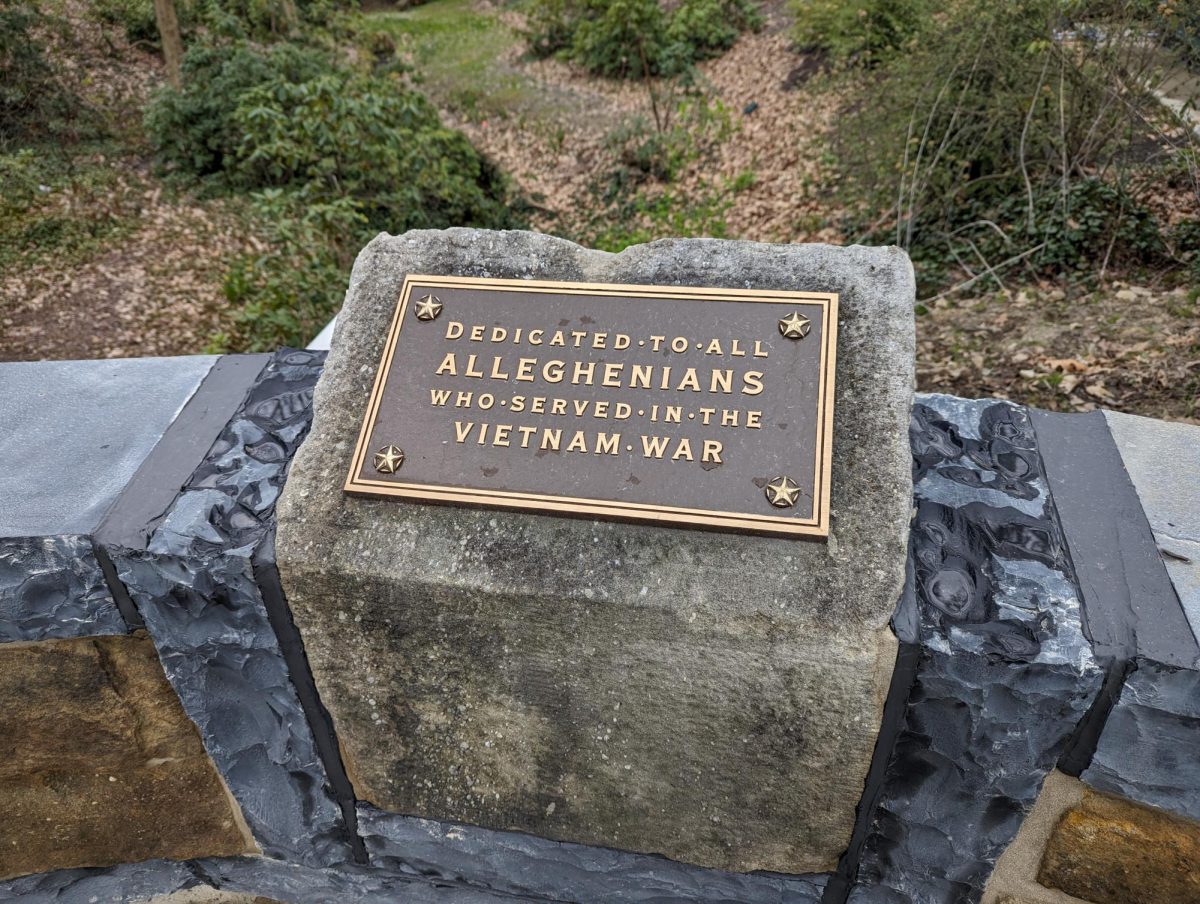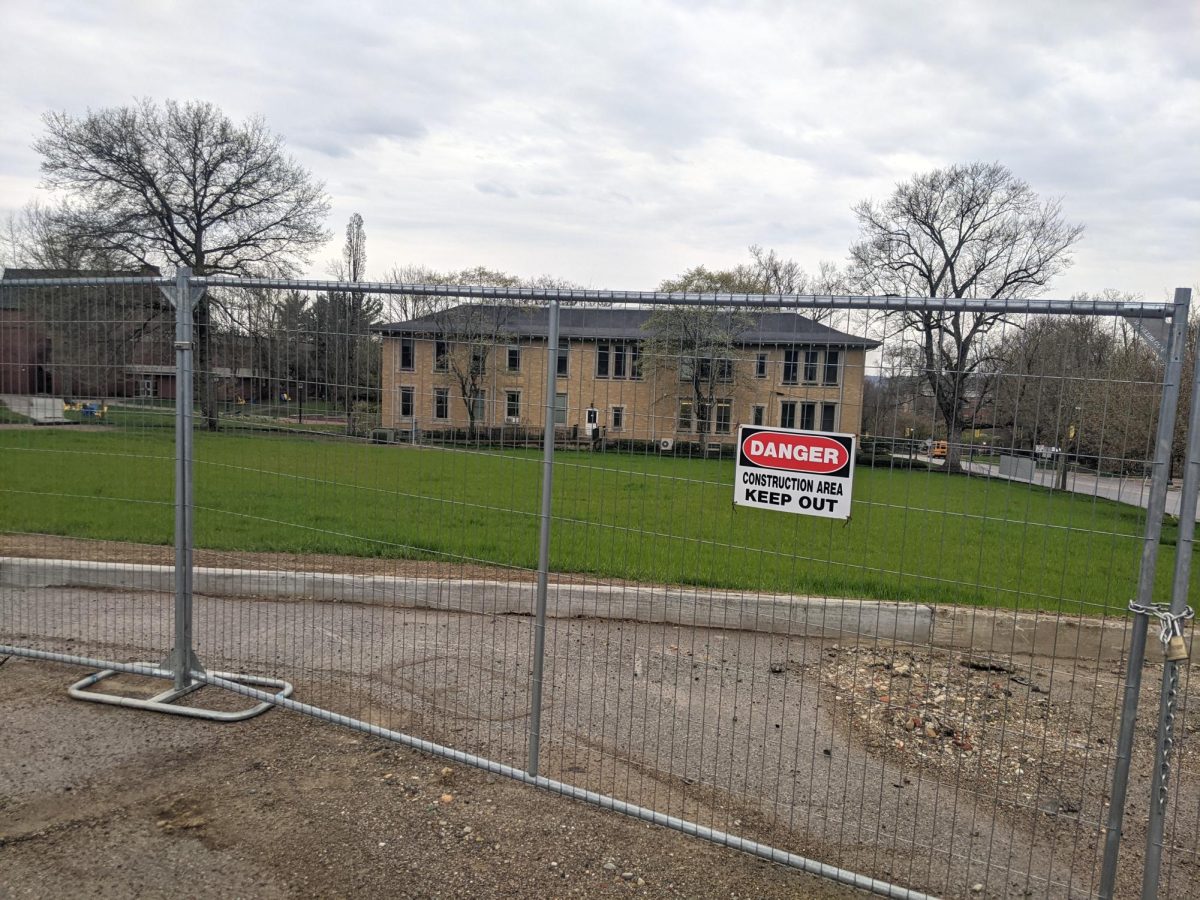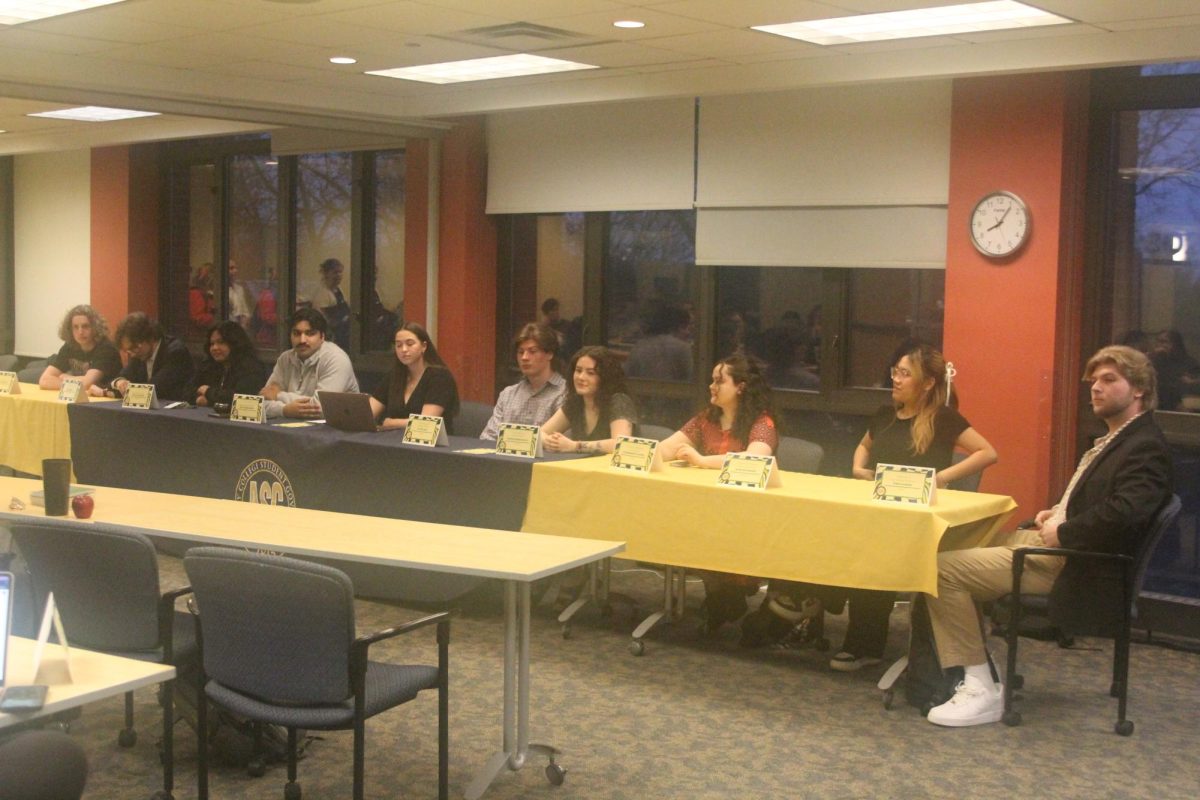President James Mullen and senior associate vice president of finance and planning Larry Lee sit down with The Campus to talk about the possibility of seismic testing in Allegheny’s Bousson Forest.
The Campus Newspaper: How is the money part of the equation coming into the debates?
President James Mullen: When you make a decision like this and go through the process, you make your decision [based] on a number of factors. First, Allegheny has an incredible commitment that we’re proud of to environmental stewardship. And we have guiding principles here. That informed decisions on the campus across the board: programmatic, construction decisions, so we’re going to begin by saying that whatever we do we are going to be loyal to our environmental ethos here.
We don’t know the dollar value that we might be under Bousson. This is not going to be a decision based on dollars, and we won’t know what is there in terms of dollar value until this process continues to play out.
Campus: What was the timeline for when you were notified by Larry Lee and other faculty members?
Mullen: Larry and I talk out a lot, so it wasn’t a long time. It was essentially immediately. Larry came and informed me and Dave McInally that we were approached. What we agreed on right away is that we would consider this through a process, that a process was fundamental to this going forward, that it would be inclusive and transparent and open. It would lead us to a point to when the trustees ultimately voted it would be an informed decision in which all voices were heard. That was the immediate reaction. We began to talk about how we would do that and how we would learn through the process.
I think a really impressive thing here is that when I talked with the board of trustees about it this fall, they said: process, we want to learn with the campus, we want to have a process that we walk through together through the campus community. I think that says a lot about our Board of Trustees, particularly at a college that is committed to civility and public discussion.
Larry Lee: At that meeting, they said when we do set up that forum that they want to come back and attend. Not all of them, but certainly a group of them. That wasn’t a suggestion from Jim and I, it was their comment that they want to be on campus when those discussions take place. I’ve been really impressed, I’ve attended three different community forums with the students, its been a great dialogue. I just attended one in Carnegie, where they gave a little presentation and afterwards they had a question and answer and I couldn’t have been more impressed. I came back and told Jim. Just the level of the questions, the thought that students had put into it. The civil nature in which the dialogue took place. It was a great representation of what we value here.
Mullen: We’ve got in this moment a remarkable opportunity. In a way, I think the nation will look at, for a college that is committed to environmental stewardship, with guiding principles, and a college that is committed to civility and public debate, for us to, as a college community, engage this question in such a way that again I believe that the nation will look at and say, “Here’s a college that had a conversation on an issue that was very complicated, and yet they did it.
They did it with transparency, with openness, they invited various points of view, and they did in a way that was civil and true to their principles.” Other principles we have here are teaching and learning. How you take advantage of a moment like this is to learn. We’re all learning about the processes and what is new and not new in the world of accessing natural gas.
This is an opportunity for us to really walk through a process together. Like Larry said, I think students, trustees, faculty, alumni, administration, what I have felt is everybody engaging this with a spirit of civility and willingness to trust the process.
Campus: How much feedback have you gotten from students, faculty or even the Meadville community?
Mullen: I think the Meadville community – and we have an alumnus who is a part of the panel, Dave Anderson, who is a member of the community, and has expertise in this field – what I have heard from this community as I have moved around is interest in how this progresses and an interest in learning as the college learns, which is a good thing as well. I’ve heard that everywhere I’ve gone and from students who have reached out.
Lee: The process has just started. The president just formed an advisory group and we just met for the first time about a week ago. That first meeting was really about catching everybody up with some of the information that Kelly Boulton and I have accumulated, handing out a lot of notes from meetings. We meet again next week and then we’ll get into our role and set up the process for communication. I think you’ll see a couple campus-wide forums very soon.
As far as student communication, again, I’ve been to the Facilities and Finance committee and we have student representation on that group. I did go to ASG and spoke there and took questions there. I attended a class.
I went to a classroom session just to take questions. Right now that’s been the extent of our communication. There are 3 students who sit on our advisory group and they will be helping us set the process for future interaction across campus. Our goal is that everyone across campus has a voice.
Campus: Has a decision been made about seismic testing?
Mullen: Not yet. We want to have the opportunity for forum conversation. Here, Larry and the task force will be looking up to set up the opportunity to learn more about what that means and the process of seismic testing. And then we’ll come toward a decision. And that will be as soon as we can.
Lee: We’d like to have an open forum before we break for the holiday and to have a group come in that said they’d like to give a presentation and give info about what the process entails.
Campus: How important is it to maintain the idea of becoming a very green college?
Mullen: We have committed as a college, and we’re proud of it, setting a standard of excellence in environmental stewardship. And, we have adopted a core set of principles around that commitment. So we’re going to honor those going forward. And you know, as we go through the process certainly as president that that’s going to be the center of what we think about.
Campus: Have you noticed within yourselves or with the trustees any sort of leaning one way or the other on your decision?
Mullen: Everyone wants to be neutral and listen. I think there are students on this campus that certainly have feelings for both sides of that question. And that’s good. The trustees feel very deeply in their responsibility as decision makers as the process unfolds to listen and to learn. One trustee said “Let’s learn through this and work this with the campus community” and they’re very committed to do this.
Lee: I know its hard for some because there are some staunch advocates for gas exploration, and some who are staunchly opposed to it. I think what we’re trying to do is embark upon a process that allows everyone on campus to be better informed. My role in it is to not bring my own bias into it. That’s not a facilitating a discussion. If we stand up and say “We don’t want to talk about it at all,” that’s not a discussion… That’s a challenge. To not want to say, “We have to stop” or “We just have to drill,” that’s not a discussion or a dialogue.
Campus: What’s your response to SEA saying that the negotiations go against the green initiative?
Mullen: I have absolute respect for that position. The way I’m trying to view this is that we have an obligation to always look at an issue like this, understand all the facts, all the date we can gather, all the information we can gather, and hold certain principles while we do that. Environmental commitment being right there. And we have to take into account the long term stewardship of the institution.
There is a way I think to look at all these questions with these sets of principles in mind. I think we have an obligation to go through the process we are now. I say that with absolute respect for the students who hold a different point of view.






